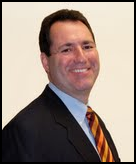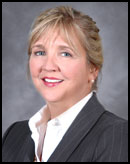Re: Walmart Health: Just had a great dental visit this morning, which was preceded by helpful reminders from Epic, and…
EMR Vendor Executives on Meaningful Use and Certification Requirements – Part Five of a Series
We asked several vendors a series of six questions related the federal government’s recent announcement on the latest proposed meaningful use definitions and EHR certification criteria.
Practices are required to provide patients with electronic copies of their visit information. How will providers do that and how will patients use that information?
Allscripts – Glen Tullman, CEO
As the Interim Final Rule (IFR) and the Notice of Proposed Rule Making (NPRM) both describe, there are many ways for physician practices to provide patients with clinical summaries of their visit information in paper or electronic form. Many of our clients have already selected the Allscripts Patient Portal as the best means of delivering this sort of secure health information to patients, whether it’s a visit summary, test results or an email message from their physician. We expect that more healthcare organizations will turn to patient portals to satisfy this requirement.
Patients, for their part, are likely to use the information they obtain from a portal for self-education, which tends to improve compliance with their physicians’ prescribed therapy. We also hope patients will share the information they take away from physician visits with other providers they may see. That is exactly the sort of information exchange that can improve the coordination of patient care across all settings, improving overall quality and lowering costs from such things as duplicative tests.
To that end, we suggest that HHS require providers to include patient portal functionality within the EHR they implement in order to meet Meaningful Use criteria. Personal Health Record utilization is not widespread at this point, but enabling physicians to be change agents in notifying patients of the availability of critical health information is an approach we strongly support and which we believe would quickly increase the number of PHR participants. We also suggest that HHS require all EHRs to include access to at least one Personal Health Record and one or more storage mediums, for example, Microsoft HealthVault or Google Health.
eClinical Works – Girish Kumar Navani, CEO and co-founder
There are currently tools available that will make that a possibility with little effort. As it stands now, providers using eClinicalWorks can have the visit summary automatically uploaded to the eClinicalWorks Patient Portal. Once there, all a patient needs is a username and password to obtain that information. Having an informed patient will increase the probability that key aspects of the visit will be remembered and followed-up on, if need be, while at the same time reducing calls into the office.
Eclipsys – Philip M. Pead, President and CEO
I believe this component of the criteria will increase the deployment of patient portals, although the easiest way to meet this requirement in Stage 1 would be a simple encrypted file copy of the information to a CD-ROM or USB-Memory device.
e-MDs – Michael Stearns, President and CEO
Our providers have this capability currently as they can export some or all of the information in an electronic format that can be provided to the patient in a number of formats, including a patient portal. Patients and family members can make use of this information by sending it electronically or physically carrying it (e.g., on a USB key) and making it available to health care settings that do not have access to an interoperable EHR.
We believe this functionality will gain increasing importance as providers and patients become more involved in care coordination, in particular in the setting of chronic disease.
GE Healthcare – Vishal Wanchoo, President and CEO, GE Healthcare IT
The meaningful use criteria specify a wide range of electronic ways that this can be met, for example PHRs, patient portals, CDs, and “thumb drives.” We expect providers will use methods that meet patient needs and are consistent with their technology. Likewise, patients will use this information to meet their needs, such as reviewing information at home, giving it to another provider, or using a PHR.
InteGreat, a MED3OOO Company – Tom Skelton, President
This can be accomplished by a simple print of a patient’s health summary and completed note. In addition, this can be accomplished by having an integrated patient portal with your EHR. There is also mention that the format given to the patient must be “readable and understandable”. We think some additional guidance here would be beneficial. Since certification under CCHIT 2008 and beyond requires support of the HL7 CCD, we expect that most EHR products will provide the visit information via a secure web portal that is populated via a CCD. Some practices may prefer to provide the electronic copy on a CD or memory stick. We suspect that the format will still be the CCD so that the data can be viewed using a standard web browser. Either way, patients will use it to research their medical conditions on the internet and to bring their records with them when seeing a specialist.
McKesson – Dave Henriksen, SVP and GM, Physician Practice Solutions
The criteria states that the eligible provider must provide clinical summaries for patients for each office visit in paper or electronic form that includes – at a minimum – diagnostic test results, medication list, medication allergy list, procedures, problem list and immunizations. We offer a robust patient portal that provides patients with online access to that information, but which also makes this information available in other acceptable formats. We believe this approach aligns with the government’s ultimate goal — that patients have easy access to their most current health information so they can make informed care decisions and ultimately better manage their health. For McKesson, we believe that we are well-positioned with RelayHeath’s PHR and HIE capabilities to provide the needed interoperability services to our customers.
NextGen Healthcare – Scott Decker, President
Physicians have always had the capability to provide patients with copies of their automated record. We have been working with our clients to provide this information for several years, however the real challenge will be getting all physicians to meet this requirement, as many don’t do it today. There are also some privacy and security issues to be worked out before record sharing can be done as effectively as the authors of these regulations wish. We hope that patients will also use their personal health information to strengthen their commitment to better health by working more closely with their doctor. Educating patients on the benefits that personal health records can have on their health will be key.
Sage – Lindy Benton, Chief Operating Officer
Our solution today is to enable the patient to access the clinical record on-demand and online though our practice portal. This enables consumers to use that information in whatever way they feel is appropriate. Patients can view or print the clinical summary from the portal, or merge the CCD into their PHR.
Alternately, the practice can provide an electronic copy on a memory stick or CD, however, this leads to the second part of this question—how will the patient use it? So the online portal seems to us the most beneficial way to share clinical information with the patient, in that it is secure, portable and immediately useful.
Ultimately, we are interested in putting the patient in a position to leverage emerging technologies. We are of the opinion that ubiquitous platforms will emerge, such as a healthcare-geared Facebook-type platform that patients will gravitate toward. In this case, it becomes a question of secure messaging and allowing the patient to consent and direct their record accordingly.
SRSsoft – Evan Steele, CEO
We don’t see this as a measure to save healthcare costs or provide improved care. This is a privacy/security/access issue; a convenience for patients who need to have access to the data in their records for some reason. I cannot envision the majority of patients requesting their medical records on a CD or a thumb drive, now or in the foreseeable future. Patients may need to request copies of their records, or portions of their records if they relocate, change providers, etc., but they typically want paper documents that they can read themselves and share as they see fit. Many providers have issues with this in that they must be much more careful and perhaps less candid about comments and notes they make in patient records if they know the patient is going to view them. Some comments could alarm them or be cause for other concerns if providers are just noting things to look out for in the future, for example.
You do not need a comprehensive, point-and-click EHR to make records available to patients. In fact, it is a lot easier to and faster to do this with a hybrid EMR. In addition, most physicians find the templated exam notes that are generated from a point-and-click EHR to be of little value—difficult to find information and lacking the detail, nuance, and precision that most specialists require.











Does GE have ANY clue on what happens in healthcare? Hard to tell but then again, I might be jaded as it is unclear any vendor REALLY gets it.
I’m hearing that many small practices do not use the patient portal functionality (perhaps because there is extra cost?) For patients that want a copy of their information on a flash drive, I’d love to hear if the vendors have any recommendations for security measures to protect a practice’s computers from potential viruses found on patient flash drives. Many practices won’t want to offer this option because of the security risk.
Tullman’s explicit suggestion that the Feds push patient data to M$ or Google health records is offensive. Has anyone here actually read their patient agreements? Both companies – and their affiliates – are allowed access to the patient records for marketing/data purposes.
This ARRA bullshit is the New Deal for EHR companies. The self-centered focus of these CEOs, even if they are only doing their jobs, is ridiculous. “Use our [proprietary] patient portal!”
Only Steele says it: “We don’t see this as a measure to save healthcare costs or provide improved care…You do not need a comprehensive, point-and-click EHR to make records available to patients.”
There are so many problems associated with providing or “sharing” patient visit data beyond the traditional paper copies:
1. How will updates and additions to previously “shared” data be made and made available?
2. “Dis-agreement” of information spread between the provider, patient and payer. Further compounded by a centralized or decentralized data storage approach
3. A proliferation of data copies and versions that most patients/people will not be able to physically manage.
4. The need to dumb-down the information to make it “readable and understandable” by Ordinary Joe.
5. An increase for unauthorized access to PHI and concomitant potential for misuse.
It’s vital to use flash cards when preparing for the PHR exam because they’re probably the most pragmatic and quick way to bear in mind stored info in your brain. A fast flash card answer could bring back the entire topic just studied. They will greatly help you on exam day.